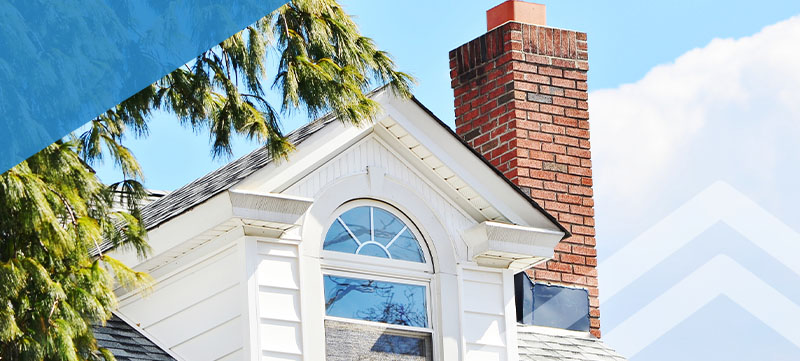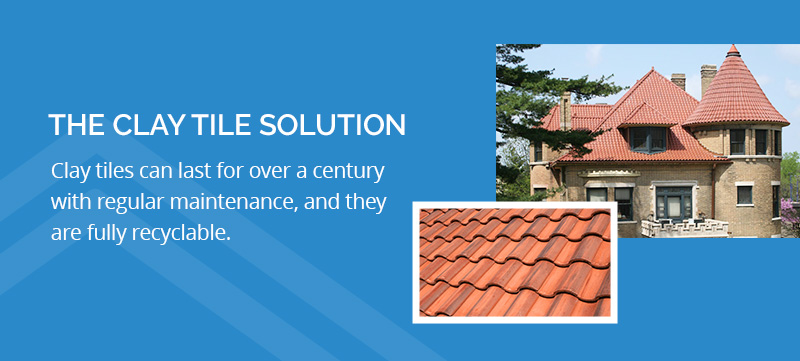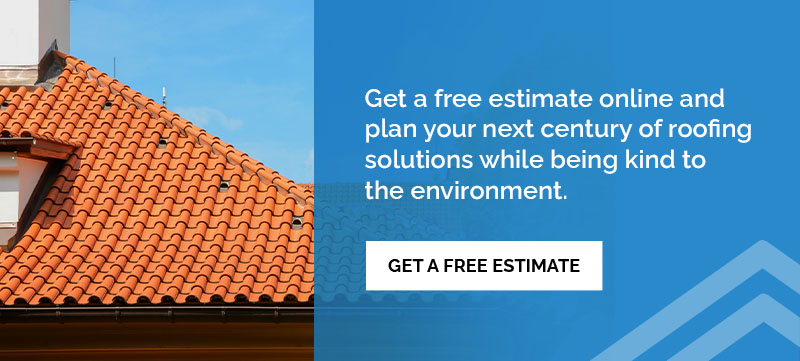Roofs are used to protect homes and the families within them from the environment’s elements. However, disposal of asphalt roofing shingles used to build these roofs causes harm to the environment. Asphalt shingles, used widely across the United States for over a century, have become an unnecessarily hazardous waste product that far more eco-friendly alternatives could easily replace.
Are Asphalt Shingles Bad for the Environment?
Recently, Indianapolis television station WTHR13 published an exposé on the local roofing industry and the failure to recycle millions of pounds of shingles, despite often making promises to the contrary. The powerful spring and summer storms that brought large hail and high winds resulted in over $500 million in roofing damages in Indiana in 2021 alone. Replacing these damaged roofs has created tens of millions of pounds of shingle waste, which could be recycled but are diverted to Indiana landfills instead.
The environmental impact of putting these shingles into landfills cannot be overstated. Industry experts estimate that asphalt shingles take between 300 to 400 years to decompose fully. Shingles are dense and take up a lot of room, resulting in a loss of space for other types of waste. They also can leech potentially carcinogenic chemicals into groundwater supplies. The Metal Roofing Alliance estimates that 20 billion pounds of asphalt shingles are dumped in U.S. landfills every year.
Can Asphalt Shingles Be Recycled?
As the WTHR investigation revealed, roofing manufacturers, such as Owens Corning, offset criticisms of the environmental impact of their shingle products by pledging to customers that their partner contractors will recycle their old shingles and won’t use landfills. WTHR has revealed that this promise has not been upheld. They found there is not a single active shingle recycler in central or northern Indiana. This has changed in recent years due to various factors the article explores.
The bottom line remains — if you replace your shingle roof, the shingles are headed to a landfill.
Are Asphalt Shingles A Uniquely American Issue?
The United States is a global outlier, as Americans use asphalt shingles as their predominant roofing type. The rest of the world uses metal, tile, slate, wood shingles and other durable materials to protect their dwellings. Even the thin tin roofs found in lower-income South American settlements have a longer average service life than American shingles.
While they are quick and cheap to install, asphalt shingles are easily damaged by wind and hail and degrade in the UV light of the sun. They must be installed in proper weather conditions and last, on average, 12 to 15 years in the Midwest. Instead of installing roofs with 30, 40 or even 100 years of service life, most Americans go through the regular cycle of shingle replacement, continuing to add to landfill piles.
What Can We Do About Shingle Pollution?
The answer to this asphalt shingle disposal problem involves a two-fold solution. The need to restart the recycling centers for shingles in Indiana is paramount. Innovation in both shingle components and in the making of road asphalt will increase demand for these products. Ultimately, though, the long-term answer is to move away from asphalt shingles to longer-lasting, more sustainable roofing systems.
The Clay Tile Solution
Alongside their aesthetic appeal and despite their extra weight, kiln-fired clay tiles outshine asphalt shingles in their durability. Clay tiles can last for over a century with regular maintenance, and they are fully recyclable. Clay tiles are also excellent insulators, meaning homes can stay temperature-regulated with less energy consumption from air conditioners and heaters. Asphalt shingles do not provide as much thermal mass and are much more prone to weather damage.
The Slate Roofing Solution
Like clay, slate is a dense, hardy material that insulates the home while providing a stunning exterior. Because it’s made of natural stone, slate roofing is particularly good at withstanding heavy hailstorms, making tiles less likely to chip, shatter or fall off. Slate stone occurs naturally and requires less processing than other roofing materials, making it a more environmentally friendly choice than asphalt. They are also known to last upwards of 100 years with adequate care.
The Metal Roofing Solution
Metal roofing provides the best alternative to asphalt shingles, particularly in the Midwest climate. Unlike slate roofing options and clay roof tiles, metal roofing does not require enhanced structural strength to support the heavy weight of those systems, which most U.S. buildings are not prepared for. In addition, metal roofing is far more cost-effective than slate, tile or wood shake roofing systems while still providing up to 100 years of useful service life. Metal roofing is 100% recyclable and environmentally friendly. Finally, some metal roofing systems can be installed on wooden batten bars above the existing shingle roof, eliminating the need to tear off the shingles in the first place and saving money and landfill space.
There are other benefits to choosing metal roofing besides reducing single disposal costs and environmental protection. It has a fantastic curbside appeal that could boost a home’s resale value, and it comes in a wide variety of colors and styles. If homeowners are still after the look of asphalt shingles, they can opt for metal shingle roof panels, which provide similar aesthetics without the environmental cost. Homeowners looking to emulate the classic beauty of Spanish-style clay bricks with something lighter and less expensive can get metal tile roof panels installed in various colors and finishes.
How Homeowners Can Help
As the WTHR investigation showed, Indiana will be dealing with the effects of millions of pounds of discarded asphalt shingles for centuries yet to come. But by moving to more environmentally healthy roofing products, such as metal, clay tile or slate, we can escape the shingle replacement model that has become the norm.
Metal roofing, in particular, offers an affordable alternative to asphalt shingles that not only helps protect our environment but provides two to three times the service life, energy savings, and maximum protection against wind and hail. As the fastest-growing segment of the roofing market, metal roofing is the future, but even the best roof won’t survive until our landfills are free of the shingles we place there today.
Cornett Roofing Systems can provide homeowners with premium, expertly designed and crafted metal roofing solutions, as well as slate and clay options. Our stamp of quality lies in our 30+ years of experience, our team of trained professionals and the lifetime warranty coverage we offer. Get a free estimate online and plan your next century of roofing solutions while being kind to the environment.




